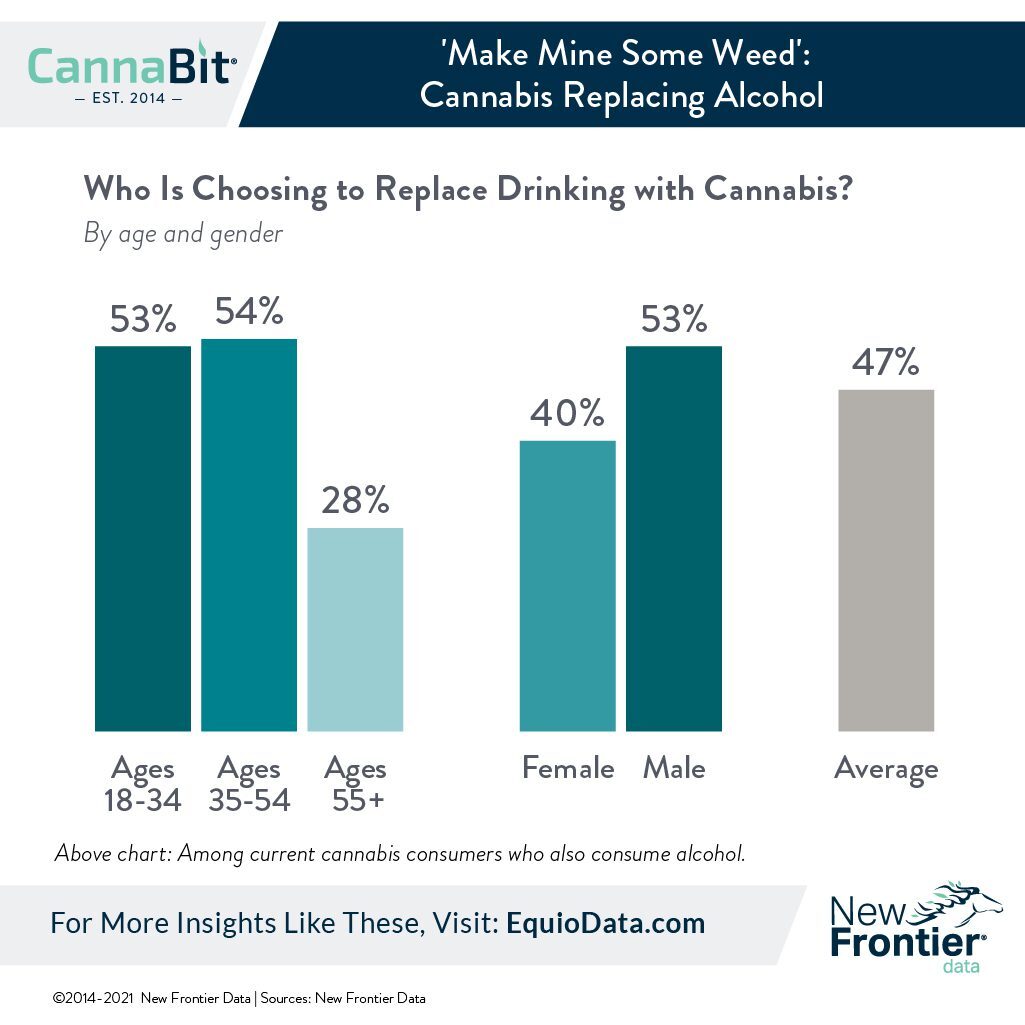Making Last Call? How Cannabis Preferences Are Displacing Alcohol

Fragmented Markets and Patchwork Regulations Aside, North America Sets Global Course for Legal Cannabis Industry
October 4, 2021
47% of U.S. Cannabis Consumers Report Choosing Cannabis Products over Alcohol
October 13, 2021By Dr. Molly McCann, Ed.D., Director of Industry Analytics, New Frontier Data
In September, Monitoring the Future — one of the longest running longitudinal studies of young U.S. adults’ drug use — found significant shifts in use patterns for each cannabis and alcohol among 19-30 year-olds in the U.S. Past-month cannabis use among the group reached 26.8% in 2020, its highest rate in over 30 years. The year also saw the lowest rates of past-month alcohol use among young adults: 64.7%, an unprecedented decrease of 3.5 points from the previous year. While some of 2020’s steep decline in alcohol use rates is almost certainly due to changes in social behavior in consequence of the COVID-19 pandemic, alcohol use among young adults has been declining for decades.
New Frontier Data’s latest report, Cannabis & Wellness: A New Consumer Paradigm, examines consumers’ trending replacement of alcohol, alongside other health and wellness behaviors.
The expansion of legal access to cannabis products, the proliferation of high-quality cannabis forms and formulations, and the rapidly diminishing stigma around cannabis use are all factors driving the increase in cannabis use.
And the well-established science on the negative health effects of alcohol is leading more consumers to explore cannabis as a healthier, safer alternative. According to a New Frontier Data survey, more than 4 in 5 (81%) current cannabis consumers believe that cannabis is safer than alcohol, with younger generations (i.e., Gen X, Millennials, and Gen Z) being especially more likely to view cannabis as being safer than alcohol.
While 16% of cannabis consumers specifically named replacing their alcohol drinking as a reason for using cannabis, the number of consumers who have replaced at least some of their drinking with cannabis use (in any form) is nearly 3x higher yet:
Among cannabis consumers who also drink alcohol, nearly half (47%) have replaced at least some of their alcohol use with cannabis. Replacing alcohol use with cannabis is higher among men than women, and is much higher among people under age 55 than among those 55 and older.
Growing social acceptance of cannabis, along with its increasing availability and variety within the infused beverage product category, will continue to drive replacement of alcohol among some cannabis consumers. As cannabis becomes more available and socially acceptable in a broader range of situations where alcohol had previously been the only acceptable option, cannabis use will supplant alcohol consumption for some users. As legal access to cannabis-infused beverages expands, alcohol replacement may become more successful for consumers who previously considered smoking, vaping, or eating cannabis to be unsuitable for replacing the act of consuming an alcoholic drink.




